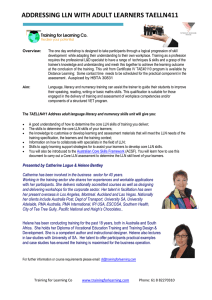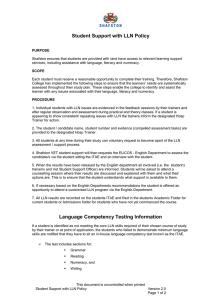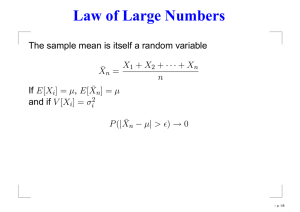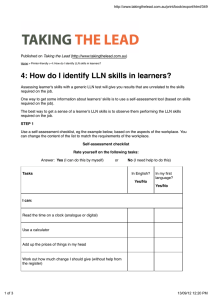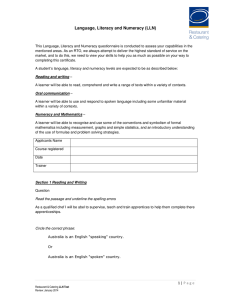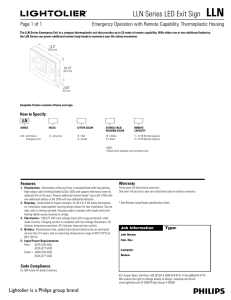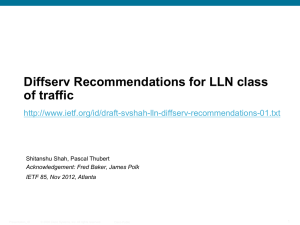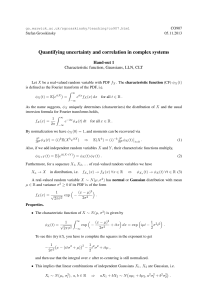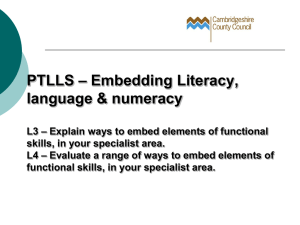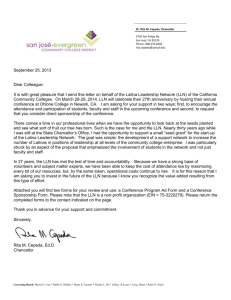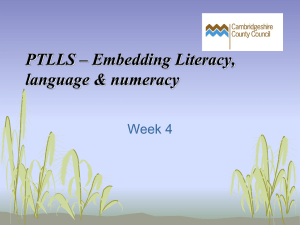view the presentation here - National Centre of Literacy and
advertisement
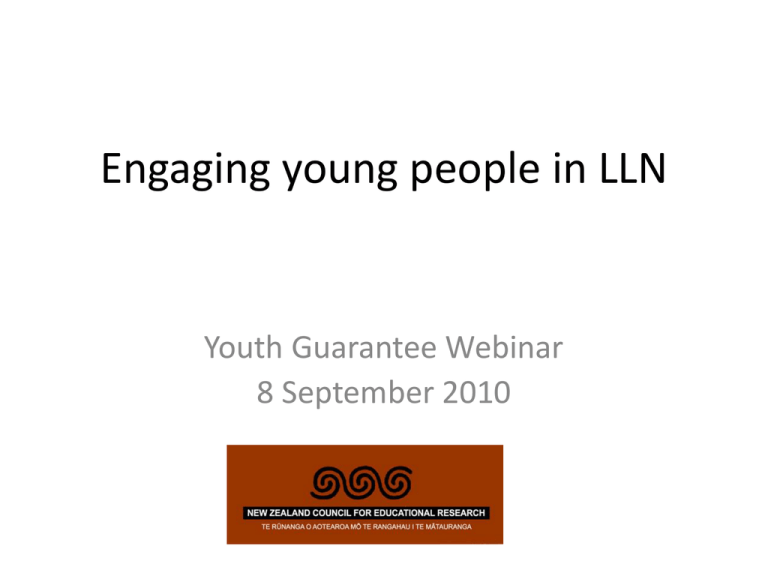
Engaging young people in LLN Youth Guarantee Webinar 8 September 2010 Webinar agenda • Some challenges about teaching young people to consider • Findings from the research • The Youth Guarantee workshops • Some challenges about teaching young people to reconsider Continuum exercise Strongly agree Agree Disagree Strongly disagree • 21st Century young people are different. • Being literate in the 21st Century is the same as it ever was. • NCEA is an appropriate response to changed times. • Young people’s pathways decisions are more difficult than ours were. • New understandings of learning mean it is not appropriate to teach the way we were taught. True or false? • Young adults should be taught separately from older adults because they are different. • Young adults are more extrinsically motivated than older adults. • Work and work experience are important to young adults. • We should change our views of teaching and learning young adults because of new brain research. • Tertiary education should replicate the best things about school. • Good teaching is more important than pastoral care for young adults. • Literacy and numeracy is best embedded by “stealth” and not addressed explicitly. How to find the research • http://www.dol.govt.nz/services/LMI/researc h-programme/lln/ • Literature review; summary report; research report (literature, interviews and case studies • A number of publications about adult LLN including the Upskilling Project Findings from the research • Young people/young adults’ LLN outcomes are difficult to measure: – – – – – timeframes research methodology self report (no national instruments) economic impact on individual (Tyler) and society funding (people leave programmes for employment before completion) – measuring “soft outcomes” - self-confidence and selfesteem What we do know: the learners • range of perspectives (Gen Y) • motivation and engagement in postschool – – – – – importance of vocational approach/work experience extrinsic motivation mentoring and counselling hooking in (referrals or word of mouth) the impact of the school experience • being treated as an adult and as an individual • having a voice Adults who work with young people • • • • • importance of good teaching “unsung heroes”? dealing with social, personal and academic status in education and qualifications appreciate opportunities to undertake qualifications Effective organisations • Integrated services – friendships facilitated • embedded approach – LLN and vocational • importance of teaching and relationships with learners • hooking in (referrals and word of mouth) • social (not physical environment) • “not like school” – being an adult Effective programmes • The importance of good teaching – Small groups – Authentic contexts – Short term goals, learning in manageable steps – Start from where the learner is at, meet individual needs – Progress at the learner’s pace – Relaxed informal but focused What works specifically for young people • • • • • • • • Use of ICTs and mobile technologies A range of activities, fun activities Short term goals; extrinsic rewards Emotional support from teacher One-on-one mentor, easily accessible Popular culture, youth culture as contexts Valuing of young people for uniqueness Social context facilitated; youth friendly environments Future considerations • 21st century learning, LLN and young people/young adults (new learnings about the brain) • focus on those “most at risk” • teacher training and quality (multiple abilities needed) • funding models – outcomes, programmes • accept multiple approaches Youth Guarantee Workshops: April and May • Participants • Programme – Research findings – Sharing resources including assessment tool – Surfacing issues • Youth Guarantee cohorts • Organisational factors • Unexpected and not uniform experiences Youth Guarantee Workshops • Issues – policy implications – funding, age group and demographics, numbers – paperwork – research findings (not so easy in practice) – “these kids are different and harder to motivate” – literacy and numeracy for adults assessment tool – school responses
